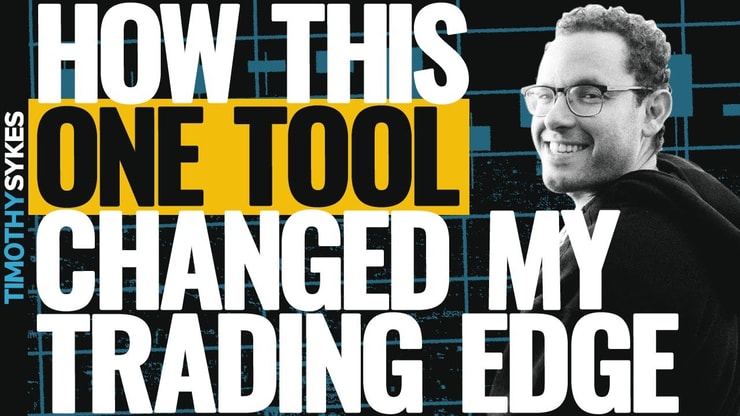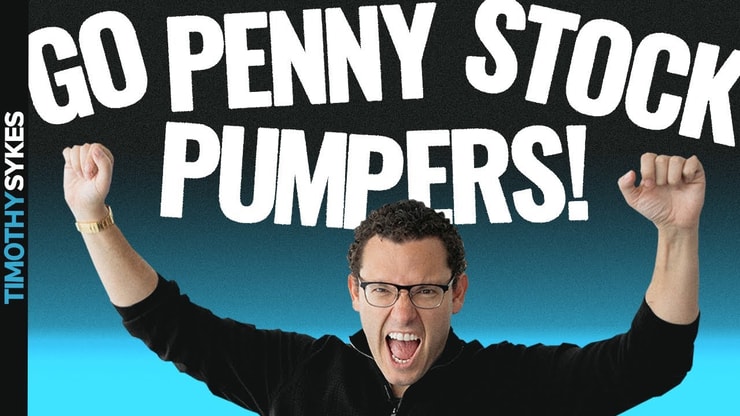Most of you have heard of boiler room operations. That’s largely thanks to JB, aka ‘The Wolf of Wall Street.’ They’re often one of the first things that come to mind when talking about penny stocks.
But these boiler rooms are not all cocaine-fueled cons. And there’s a reason that boiler rooms are still around today.
In this post, I’ll teach you the basics of boiler room operations and some of the tricks they might use. Study up! This is important and can help you better understand the world of sketchy stocks.
Table of Contents
What Is a Boiler Room Operation?
Just the name should tell you all you need to know. Do you know what a boiler room on a ship is? It’s where sweaty guys constantly shoveled coal into furnaces. That’s the vibe with penny stock boiler rooms. Then there’s the fact that stock-selling boiler rooms in their heyday were often in the boiler rooms.
That just adds to the perverse legend of boiler rooms.
You probably know what a boiler room is used for from the caricatures of it. It’s a bare-bones call center with unending phone directories of sucker ‘investors.’
These stock promoters would use high-pressure sales tactics like saying, “This is your kid’s college fund” in response to the most reasonable requests to consider the offer.
Boiler room scammers love hot sectors. They love to push companies that are all promise but with no product. Like tech stocks in the 90s and pot stocks a few years ago. You know, the kind that that ‘Wolf of Weed Street’ used before I exposed him.
Think of it as all of the pressure of trading with none of the substance. This is why it makes for great parodies of Wall Street — heck, I even tried my hand at it.
How Do Boiler Room Schemes Work?
First I want you to understand what I teach about trading penny stocks.
It’s important to respect the process and stick to the rules. You have to study the past. And I teach my students to aim for singles and cut losses quickly.
So what do boiler rooms have to do with how I teach penny stocks? I’m really just a glorified history teacher. And boiler rooms play a big role in penny stock history.
Back in the day, most boiler room operations were run out of large, empty office spaces, filled wall to wall with phones and inexperienced salespeople. They’d cold-call numbers on a ‘sucker list,’ targeting those who’d fallen prey to previous scams.
Once they hooked someone, a closer would get on the phone and pump up an often worthless, thinly-traded penny stock. It was all to inflate the stock price so investors could sell at the stock’s highs.
These days, boiler rooms come in the form of promoters. You might see mailers, email blasts, Twitter pumps — all ways to cast a wide net. Unsuspecting newbie traders and uneducated investors fall for it too often.
Don’t be one of those people. If it sounds too good to be true, it probably is.
How to Spot a Boiler Room Operation
I’m using the term boiler room here as a synonym for any kind of stock pump or promotion. I want my students to know how to spot them. You can read up on the truth about promoted penny stocks here.
If you’re on the lookout for scams and the blatant pumps that go with them, you might even find some opportunities.
Here are some typical boiler room sales techniques…
Aggressive Sales Tactics or Threats
I don’t believe anything anyone says about a stock. I want to see volume and price action. There are tons of companies out there that are only selling stock. They’re selling hype and a story.
One key sign of stock promotion is when the story isn’t even about the stock. It’s about you, and how you’re one click away from missing a once-in-a-lifetime opportunity. Don’t fall for the hype or give in to FOMO.
Keep an eye on the stock. In the insane 2020 market, it could spike big and go supernova. If you’re more experienced, you could short it when it inevitably fails. I don’t go for shorting much lately, and I don’t recommend it for newbie traders. The short squeeze can decimate accounts.
Promises of High Returns With Little or No Risk
You can minimize your risk in the market, but it involves discipline. I don’t ever want to see one of my students put themselves into a position where they lose big.
So you have to follow the rules and stick to your go-to patterns to find consistency.
No one will ever hand you a risk-free opportunity for high returns. It doesn’t exist. Every time I mention my Trading Challenge students who make exceptional profits, I have to state that most traders lose money and that trading is inherently risky…
Because it’s true. My top students took years to learn the markets and reach those kinds of profits. They’ll be the first to tell you that. Beware ‘gurus’ who promise gains but won’t share every detail.
My students and I are all about transparency. It’s why I created Profit.ly and post every trade I make — wins and losses.
More Breaking News
- FMC Plans Debt Reduction and Strategic Growth Initiatives for 2026
- European Wax Center Signals Confidence with Financial Projections Boost
- Breaking News: Ondas Navigates Market with Enhanced Strategy
- Datadog Battles Price Target Reductions Amid Growth Hopes
Pressure to Buy Quickly
I love this part of a boiler room operation because it’s such an obvious example of the wrong thing to do.
One thing that’s great about penny stocks is there can be less pressure in trading them compared to other kinds of trading. Sometimes you have more time to find plays. The financial media tends to overlook these stocks. With large-cap stocks like Amazon, top analysts and talking-head pundits dissect every second of every move.
With penny stocks, there can be a gap between big announcements and media coverage. There can be informational inefficiencies there. The key is in knowing how to trade them.
Although, this year, that’s changing a bit. The global pandemic has resulted in millions of new day traders. And a lot of them are trading penny stocks. It’s making for moves in this niche like we’ve never seen before.
And with StocksToTrade’s incredible Breaking News chat, traders can find the catalysts that can really move stocks fast. It’s a game-changer. I know it’s been incredible for me this year.
Unsolicited Offers
No legit company needs to hit up potential investors with unsolicited offers. Stocks with value don’t need to look for buyers. The buyers come in because there’s value, like a legit product or service that generates revenue. They’re not spamming random casual investors to raise short-term capital.
This is a boiler room operation by definition. Don’t learn this lesson the hard way. Never believe in these companies and definitely don’t hold and hope. It’s not a strategy.
Are Boiler Rooms Still Around?
Unethical boiler room operations aren’t what they used to be since the SEC cracked down hard. But there are still stock promoters around the world.
Sometimes these operations are in countries without extradition treaties. Or sometimes they set up in countries where there are fewer rules against insider trading. They may set up in countries where they can bribe local authorities.
Often these selling operations are connected with the companies whose stocks they sell — companies whose only real products are stock and hype.
Are Investors Protected From Boiler Room Operation Fraud?
According to the SEC, it’s not OK to “materially mislead” an investor. You can see the agency hammering down on a boiler room grift in this 2016 complaint against two men who sold worthless shares in Sanomedics Inc. and another company to vulnerable investors across the U.S.
The SEC details the crimes: misleading the salespeople working for the boiler room, fraudulently convincing investors to buy shares, and acting as an unregistered broker.
Then the complaint goes on to say that the defendants already spent $3 million on “credit cards, residential renovations, luxury automobiles, and mortgage payments.”
Those investors aren’t getting their money back. This is why you have to build your knowledge account.
Knowing how the market works — especially the dark, seedy underbelly — is your ultimate line of defense. Disciplined, educated traders don’t fall for empty promises. They watch for boiler room operation runs and trade them when the setup is right.
How Can You Avoid Boiler Room Schemes?
Consider this your boiler room lowdown.
If you want to become a self-sufficient, consistent trader, the first thing you need to do is ditch the ‘money mindset.’ That’s the greedy voice in the back of your head that just wants more money faster. You have to learn to think for yourself.
My top students know that there’s no such thing as a golden opportunity. Some of them have made killer gains, but not by falling for stock promotions or boiler room schemes.
There’s no secret — they just work for it. Every day, they study the markets, learn the patterns, and prepare for the opportunities that come around every day.
Frequently Asked Questions About Boiler Room Operations
Throughout my career, I’ve made a point of shining a light on these bad actors in the penny stock world. They take something beautiful like the goal of financial freedom and use it against traders.
The North American Securities Administrators Association estimates that investors lose an estimated $10 billion a year to investment fraud. That’s roughly $1 million an hour.
Older people lose more than younger people, even though fraud victims are likely to be more financially literate than average. And many victims of fraud hide it because it’s embarrassing to lose money out of stupidity and greed.
These scams aren’t going away on their own — if anything they’re getting new ammo during this pandemic. This is why I spend my time explaining what boiler rooms are and how they operate. But as long as stock promoters are out there, I’ll be grateful. They’ve helped me make money by trading their pumps.
Who Owns Boiler Room Operations?
Often, this is the key to what a boiler room operation is. If you find out, let the SEC know. This is part of the lack of transparency that boiler rooms run on. Usually, there’s a fishy relationship between the boiler room operation and the stock it’s promoting. And for the last few decades, organized crime has been adopting the boiler room template. Good luck getting your money back from the Russian mafia.
Are Pump-and-Dump Schemes Used in Boiler Room Operations?
While boiler rooms fit the definition of promotional pumps, they’re not the kind of pumps l like to trade. Often, the OTC Markets will slap the dreaded skull and crossbones on these stocks. That’s the ‘Caveat Emptor’ designation that suspends the stock from trading. If you’re holding and hoping when this happens, you’re out of luck.
What Are the Most Famous Boiler Room Operations?
I’ve talked about some infamous boiler-room operations before. The most well-known boiler room operations inspired the movies “Boiler Room” and “The Wolf of Wall Street.” They also caused epic losses for investors. Other boiler room operators have historically been harder to pin down, tied to fly-by-night companies. They’re just criminals, not egomaniacal jerks. They recognize that anonymity is one of the strengths of this con.
Who Owns Boiler Room Operations?
Often, this is the key to what a boiler room operation is. If you find out, let the SEC know. This is part of the lack of transparency that boiler rooms run on. Usually, there’s a fishy relationship between the boiler room operation and the stock it’s promoting. And for the last few decades, organized crime has been adopting the boiler room template. Good luck getting your money back from the Russian mafia.
Are Pump-and-Dump Schemes Used in Boiler Room Operations?
While boiler rooms fit the definition of promotional pumps, they’re not the kind of pumps l like to trade. Often, the OTC Markets will slap the dreaded skull and crossbones on these stocks. That’s the ‘Caveat Emptor’ designation that suspends the stock from trading. If you’re holding and hoping when this happens, you’re out of luck.
What Are the Most Famous Boiler Room Operations?
I’ve talked about some infamous boiler-room operations before. The most well-known boiler room operations inspired the movies “Boiler Room” and “The Wolf of Wall Street.” They also caused epic losses for investors. Other boiler room operators have historically been harder to pin down, tied to fly-by-night companies. They’re just criminals, not egomaniacal jerks. They recognize that anonymity is one of the strengths of this con.
Trading Challenge
So how can you avoid falling for boiler room cons? Focus on your education. You have to build your knowledge account first and foremost. If you know what you’re facing in the markets, you can be better prepared.
So not only can you spot blatant stock pumps from a mile away, but you can also learn to trade them if the setup is right.
My Trading Challenge is where you can learn it all and hone a strategy that works for you. Shady hustlers feed off of people who take the bait. Apply to join the Challenge today if you’re ready to shed the bad habits that can make you easy prey.
The Bottom Line
If you’re prepared and educated, you should never get caught by a boiler room.
And it’s not because you know everything … It’s because you’ve learned to think for yourself.
You have a strategy that suits you. And you know to do your research on every single trade. That’s how you may discover the stock is probably a pump. Once you know that, you can adjust your trading plan accordingly.
This is why disciplined traders outlast the vast majority of traders who don’t make money in the market. It’s because we have a system. We don’t try to predict the future, we react.
I want to hear from you. Tell me what you think about boiler room operations. Leave a comment!







Leave a reply